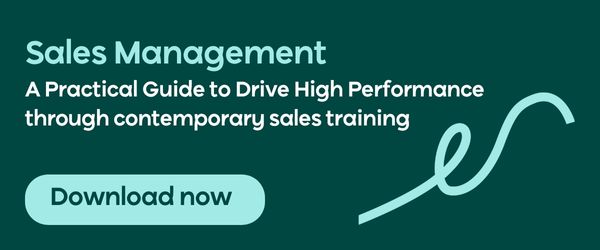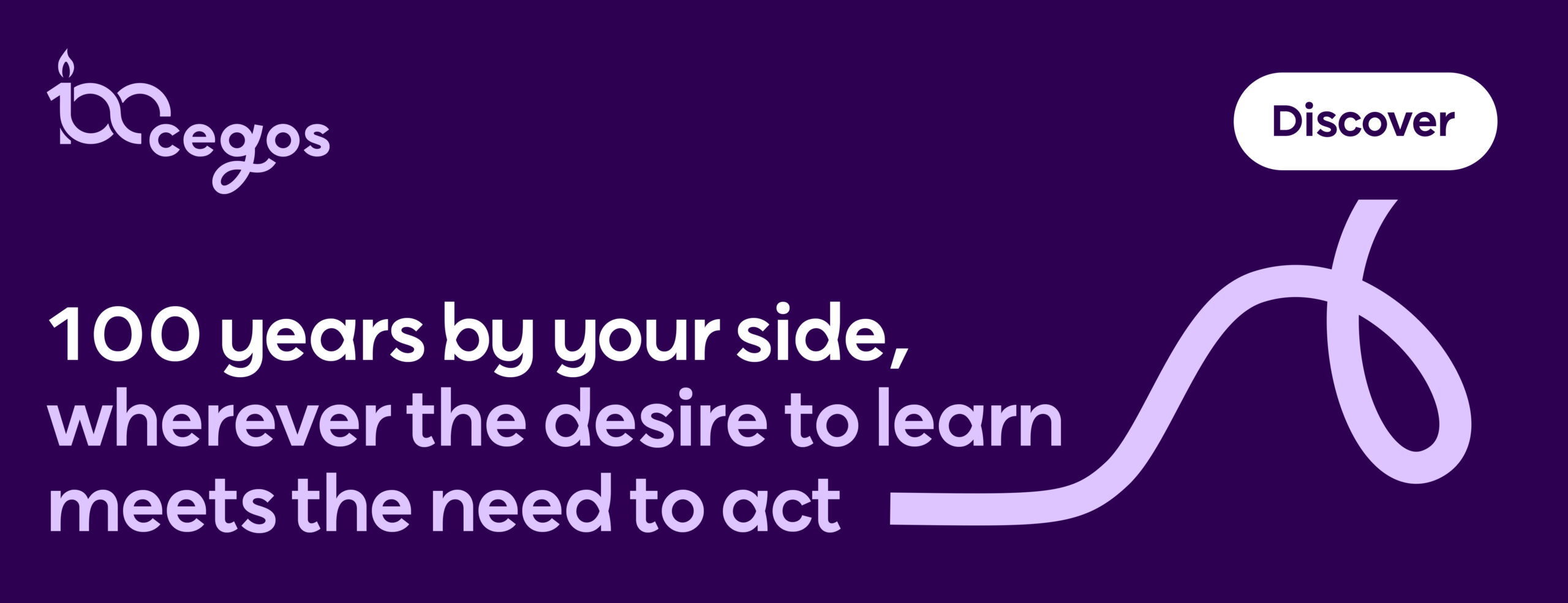
The 5 soft skills that make the difference for salespeople

AI is automating sales, and a new type of salesperson is emerging: more human, more strategic, more cooperative. This shift requires the development of specific soft skills. Here are 5 that are redefining sales performance.
At a time when AI is also disrupting the sales profession, what added value do salespeople still offer?
The answer is quite clear. On the one hand, customers are better informed, more demanding, and often already well advanced in their purchasing journey before even making initial human contact. On the other hand, companies are becoming more cross-functional, more complex, and more intertwined.
So in this new ecosystem, it is not technical knowledge or sales scripts that make the difference. It is behavioural skills, or soft skills, that will make all the difference.
This is where salespeople become truly valuable. Not simply as conduits for a company's offerings, but as relationship builders, cooperation facilitators and decision makers.
Let me tell you more about the five soft skills that are essential for building trust with customers today. We're looking at the long term here.

1. What is the best soft skill for a salesperson?
The soft skills I am going to talk about are often complementary, but informed listening is perhaps the best of all for salespeople. Informed listening goes far beyond traditional active listening.
With this soft skill, you can understand what is said, what is left unsaid, and what is implied in a sales conversation. It involves mobilising your attention, empathy, analytical skills and professional knowledge to pick up not only on words, but also on subtle signals, hesitations and inconsistencies. It also means taking the time, because not everything is apparent from the first exchange, far from it!
Why is informed listening essential?
Informed listening is an essential soft skill because what the customer expresses is often only part of their real need. This skill allows you to decipher what is going on behind the requests: internal tensions, political issues, unexpressed obstacles.
Salespeople who have mastered this soft skill can position their offer as a relevant response to an overall need. It is no longer a simple technical response. These are truly elite salespeople.
A concrete use case
During an initial meeting, an operations manager explains to a salesperson that she is looking for a better solution to improve delivery times. Traditional salespeople would offer a suitable logistics solution.
Salespeople who are used to working on their listening skills will, by asking the right questions and observing what is left unsaid, understand that the real issue lies elsewhere. It is the pressure from the executive committee on customer satisfaction and a latent conflict with the purchasing department over costs that are at stake. This attitude allows them to refocus the discussion on a more comprehensive solution for the company, which may also involve change management.
How can you learn to listen effectively?
In our training sessions with sales teams, we work on the RARE approach: Reinforce the relationship, Accept the customer's comments, Rephrase their comments, Explore with engaging questions.
This involves:
- Preparing qualitative questions that go beyond the expressed need,
- Practising with simulations, with feedback focused solely on listening,
- Conducting structured debriefings with your manager after appointments. The aim is to analyse the information obtained and what could have been explored in greater depth.
2. Emotional intelligence
Emotional intelligence refers to the ability to recognise, understand and regulate one's own emotions, while perceiving and adjusting to those of others.
Why is this skill essential?
Purchasing decisions are never purely rational. They are influenced by trust, fear of change and internal pressure.
Emotionally intelligent salespeople are accustomed to adapting their attitude to the emotional state of those they are talking to. They are better at detecting tension behind silence, understand that aggression can mask stress, and sense when to slow down to give the other person time to take in a proposal.
They are also attuned to their own emotions, avoiding impulsive reactions and not taking rejection personally.
A concrete use case
It is often at the moment of purchase that customers' emotional charge is strongest. Salespeople with a better understanding of emotions, who are ready to accommodate their customers' emotional state, know how to calm things down and ask useful questions, rather than putting pressure on customers by trying to rush the decision.
How does emotional intelligence training work?
Emotional intelligence training takes place in several stages. We start by learning to name emotions. Then we practise observing emotions and their impact on customers' body language and non-verbal communication. Finally, we develop the reflex of asking our peers or customers for emotional feedback: ‘How did you feel during this exchange?’

3. Assertiveness
Assertiveness is the ability to clearly express your ideas, needs or disagreements without being aggressive, submissive or manipulative. In short, it's an iron fist in a velvet glove. This is another essential soft skill for sales roles.
Why is assertiveness essential for a salesperson?
Being assertive means knowing how to set clear boundaries without creating tension, knowing how to say no without damaging the relationship, and knowing how to defend value without constantly justifying yourself. This is essential when dealing with demanding clients!
Another benefit of this soft skill is that it helps avoid misunderstandings, unrealistic promises and accumulated frustration. In this respect, assertiveness is entirely complementary to emotional intelligence, as it helps salespeople to verbalise their own emotions.
A concrete example of how it can be used
Let's take the case of a customer who demands an additional 15% discount, citing the competition.
Rather than giving in to pressure or responding curtly, an assertive salesperson builds on the relationship:
‘I understand that you have budget constraints. For our part, we have put together a tailor-made offer with strong commitments. This level of discount would compromise the quality of the service we have offered you. Let's explore other options together if you wish.’
Here, the framework is firmly established, without any disruption. The salesperson opens up room for negotiation without denying the value of their offer.
How can you learn to be assertive?
There are several training approaches for this soft skill.
- Work on clarity of expression: speak in the first person, avoid vagueness or insinuations, and use affirmative sentences.
- Use techniques such as the DESC method (Describe, Express, Suggest, Conclude) to structure difficult messages.
- Observe your own relationship to conflict: avoidance, confrontation, manipulation? And adjust your reactions.
- And practise a lot!
4. Sense of cooperation
A sense of cooperation refers to the ability to work effectively with others. For a salesperson, this means moving away from an individualistic mindset and embracing a collective dynamic, both internally (sales team, marketing, customer service, production, etc.) and externally (customers, partners, integrators, etc.).
Why is this skill essential?
Salespeople are no longer ‘lonesome cowboys’ when dealing with customers. They must be conductors who mobilise expertise, align messages and facilitate interactions. A good sense of cooperation also helps to avoid silos, better serve customers and promote teamwork as a lever for sales performance.
A concrete use case
A salesperson detects an opportunity with an industrial customer, but the offer requires the involvement of the design office, product marketing and a technology partner.
Rather than ‘going it alone’, they organise a clear briefing, share the customer's expectations, coordinate communications and ensure consistency in the response.
Thanks to this collaborative approach, the customer receives a smooth, professional and unified response. This is a far cry from the ‘patchwork of services’ that we sometimes see.
How can you learn to cooperate?
- Cultivate internal listening as much as customer listening: understand the constraints of other departments in order to better integrate them.
- Promote collective successes, in objectives and in everyday communication.
- Learn how to lead collaborative projects, even without direct hierarchical authority.
5. Leadership
Leadership is the ability to positively influence your environment without necessarily having hierarchical power. For a salesperson, it means knowing how to stay the course, embodying the value they offer, and creating long-term buy-in.
Why is this skill essential?
Today, the sales profession goes beyond simple selling. Salespeople are becoming a point of reference for customers, someone who can guide, reassure and make a difference. This leadership is not expressed through authority, but through the alignment of attitude, discourse and commitment.
In complex organisations, it is this leadership that enables salespeople to mobilise internal resources, influence customer decisions, and position themselves as strategic partners rather than interchangeable service providers.
A concrete use case
During a call for tenders, several stakeholders disagree on the direction to take in their response. Rather than waiting for the situation to resolve itself, the sales representative takes the initiative to organise a clarification workshop before submitting the proposal. In doing so, they facilitate exchanges, refocus the discussion on the overall issues at stake, and help the parties decide on the direction to take. They do not seek to convince at all costs: they clarify, structure and guide. This type of initiative is often decisive in complex sales.
How can you develop your relational leadership skills?
- Work on your ability to influence without authority: listening, rephrasing, framing, calm conviction
- Ask for feedback on your impact: am I perceived as a driving force, reassuring, credible?
- Take leadership modules designed for salespeople
Bonus: what other behavioural skill should you work on as a salesperson?
I will end this article with a bonus skill: relational curiosity
Relational curiosity is a sincere desire to better understand the people we interact with: their context, their motivations, their constraints, their ways of thinking.
Relational curiosity is not linked to a commercial act; it is a soft skill that is exercised on a daily basis in all interactions with customers.
Why is relational curiosity essential?
For a salesperson, the temptation to rush or follow a pre-established pattern can be strong. Relational curiosity is a soft skill that encourages you to slow down and listen more carefully, to break out of automatic patterns and personalise your approach. It allows you to strike up unexpected conversations, detect invisible opportunities, and adapt your language to the other person's world.
Above all, it is also the fuel for other soft skills. Without curiosity, there can be no informed listening, no subtle emotional intelligence, no fruitful cooperation. It is more a state of mind than a technique, but it can and must be cultivated!
This article was originally published on cegos.fr under the title "Les 5 soft skills qui font la différence chez les commerciaux"








